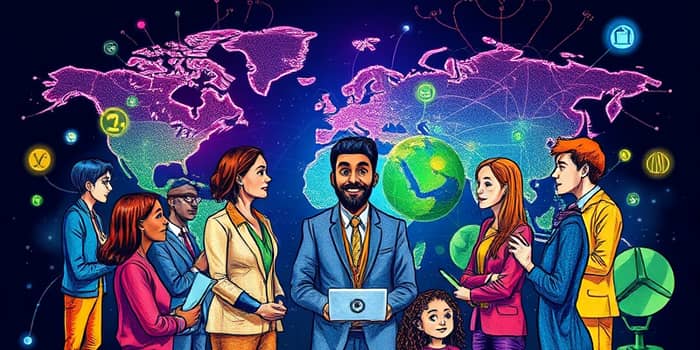
Across continents and industries, the world of work is undergoing a seismic transformation. As economies navigate rapid technological, environmental, and demographic shifts, professionals and organizations must adapt to remain resilient and competitive.
The coming decade will be defined by pervasive forces that reshape labor markets, career paths, and corporate strategies. Understanding these trends is vital for policymakers, business leaders, and workers alike.
These forces do not operate in isolation. The interaction between digital access, climate policy, and labor demographics will generate both challenges and opportunities.
Quantitative insights provide clarity on the magnitude of change. The following metrics illustrate the global scale of job churn, growth, and the skills premium.
The nature of work is evolving, and so are the demands on employees. Organizations are investing heavily in talent development to bridge skill gaps and foster a culture of learning.
As technology reshapes tasks, workers who embrace lifelong learning will command the greatest opportunities and rewards.
The pace and nature of change vary across industries and regions. Financial services and energy sectors lead in AI adoption, with workers earning the highest premiums. In contrast, retail and entry-level roles face heightened automation risk.
Advanced economies confront the challenges of aging populations, driving demand for healthcare professionals. Developing regions, conversely, leverage expanding labor pools to boost education and service sectors. Governments’ climate and trade policies further influence job creation patterns and investment flows.
Forward-thinking organizations are adopting multifaceted approaches to manage transitions and maintain agility.
By proactively engaging employees and aligning learning pathways with strategic objectives, companies build resilient, future-ready workforces.
Several additional factors will shape tomorrow’s labor markets:
Future job archetypes—from AI-augmented software developers to green economy specialists and healthcare professionals—will redefine career trajectories. The rise of gig and remote work, propelled by digital platforms, will demand new frameworks for occupational safety and quality.
Global policy decisions on technology regulation, climate action, and trade will significantly influence workforce transitions. Employers increasingly recognize the importance of addressing labor and social concerns, from equitable access to opportunities to responsible automation practices.
Ultimately, the future of work is not predetermined. It will be forged by the collective choices of individuals, organizations, and governments committed to innovation, inclusion, and sustainability. By embracing change and investing in people, we can build an economic landscape where technology amplifies human potential and prosperity is shared globally.
References





